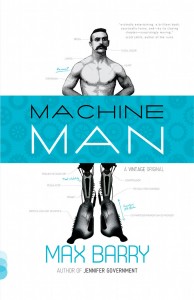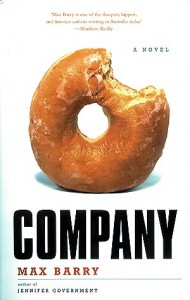![]() Max Barry has become one of my favorite authors. His novels take elements of every day life, the things that are changing around us because of advances in technology and our understanding of the world, and pushes those elements to extremes to explore their consequences in unique ways. In Lexicon, he does this again.
Max Barry has become one of my favorite authors. His novels take elements of every day life, the things that are changing around us because of advances in technology and our understanding of the world, and pushes those elements to extremes to explore their consequences in unique ways. In Lexicon, he does this again.
In today’s world, we are constantly bombarded with advertisements and propaganda that try to influence us. And there is a lot of research that shows this stuff works. The way things are presented to us or the context in which they are presented to us influences how we think about them or even how we think more generally. Imagine taking this to the extreme, where certain special words can completely hi-jack our brains and make us do whatever the speaker wants. That is the premise of Lexicon.
Lexicon follows the adventures of a group of people who are particularly adept at this kind of manipulation. They recruit kids to a special school where they teach them to hone these abilities and teach them these powerful words. These kids are then players in a bigger global arena in which the most powerful are trying to assert control.
One of these students, Emily, is different than the others, mostly in that her moral code brings her to break the rules. Ultimately, this puts her on the run from the very organization that trained her as she tries to understand the secret machinations that run behind the scenes.
I won’t go into the plot very much, but there are twists and turns throughout the novel such that you never really know who is on the side of the angels and who is not. And some of the characters are pretty grey in this regard, maybe not so much good or bad but, really, are like all of us: depending on the situation, they sometimes make good or bad decisions.
In any case, this is another entertaining novel from Max Barry that, while taking you on a roller coaster ride of adventure, still makes you think about some of the bigger questions related to how we think and what really influences how we think. I don’t really believe we are as completely autonomous as our brains make us think we are. What happens if that is taken to an extreme? Lexicon provides one entertaining answer to this question.

